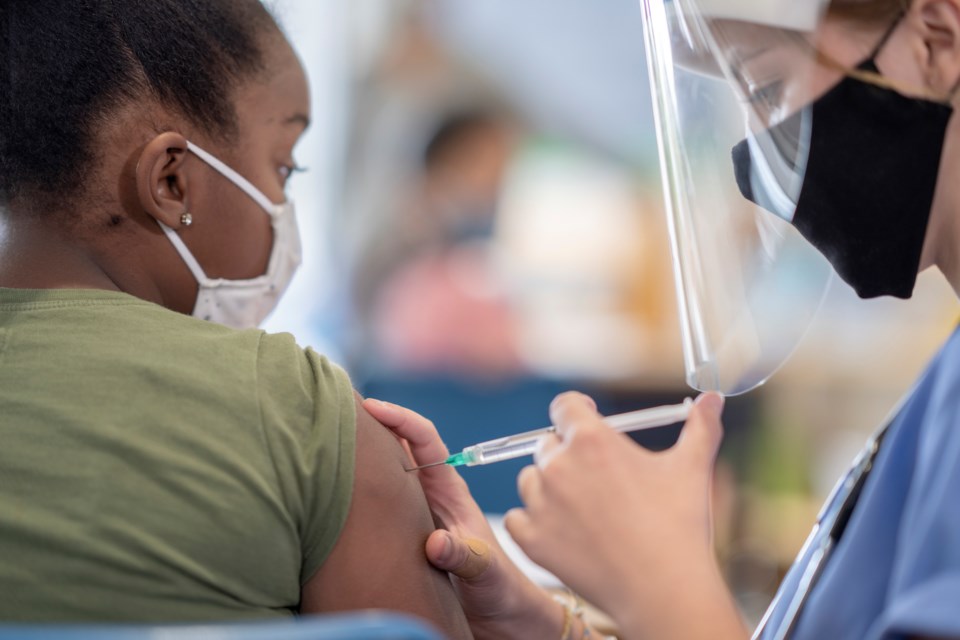A national survey on child vaccinations suggests the first year of the COVID-19 pandemic did not stall routine immunizations across the country while B.C. experienced an uptick in coverage against many diseases.
The biennial Childhood National Immunization Coverage Survey for 2021 indicates immunizations for children under age two remained stable, although in-school vaccination programs for adolescents experienced delays and interruptions that differed across provinces, compared to 2019.
Most surveyed parents (88.8 per cent) said the pandemic had no influence or that they were more inclined (7.7 per cent) to get their child vaccinated, according to the Statistics Canada release on Monday.
Infectious disease modelling expert Caroline Colijn says the findings indicate the strength of Canada’s public health system despite considerable strain and that the pandemic hardened people’s confidence in vaccinations, during a moment in time a disease was spreading globally when there was no such defence.
“The pandemic made people aware of the importance of vaccines and it highlights the success of delivery programs in Canada,” said Colijn.
The survey took information to March 2021 and is not conclusive data, but rather an estimate based on 5,185 respondents. The B.C. Centre for Disease Control (BCCDC), meanwhile, has not updated its childhood immunization rates in over 27 months.
In December, Dr. Monika Naus, the medical director of the BCCDC communicable diseases and immunization service, told Glacier Media 70 per cent of children seven years of age are up to date with all of their routine immunizations, including polio, diphtheria, tetanus, pertussis, hepatitis B, measles, mumps, rubella, varicella and meningococcal C conjugate.
For B.C., the StatCan survey indicates an increase in two-year-old immunizations against diphtheria, tetanus, pertussis, polio, hepatitis B, varicella, meningococcal C, pneumococcal and rotavirus.
Across B.C., just 80 per cent of seven-year-olds were up to date on the measles vaccine, in 2019, according to the centre. The rate in B.C. has declined each year since it was 91 per cent, in 2013.
Polio shots remained stable in all provinces, except Alberta, where there was a reported decline.
In B.C., 10.6 per cent of parents surveyed said the pandemic made them more inclined to have their children vaccinated, compared to the national average of 7.7 per cent; and only two per cent were less inclined, compared to 3.5 per cent nationally.
There were differences among certain race-based demographics, the survey showed.
“Overall, Chinese and Filipino people had a higher immunization rate than non-racialized people, while Black people had lower rates for most of the recommended vaccines,” stated the survey.
And whereas just 4.4 per cent of “non-racialized people” were more inclined to get vaccines by March 2021, it was so for 19.9 per cent of Chinese people and 21.7 per cent of Filipinos.
Another notable measure was measles coverage decreasing six per cent overall for seven-year-old children, “indicating that vaccine doses due at school-entry may have been impacted by the COVID-19 pandemic.”
The survey does not cover uptake past March 2021, when mass vaccination programs for COVID-19 took place.
Colijn says it’s possible to speculate what impact the COVID-19 immunization program, skepticism and the vaccine-evasive Omicron COVID-19 variant may have on future immunizations, but the proof will only come with the 2022 data.
Naus, however, said childhood immunizations from 2022 were on the same trajectory.

